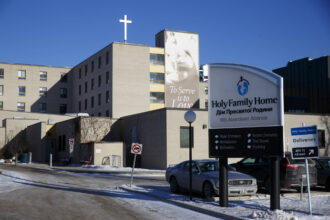Health authorities in Manitoba have issued an urgent public health alert after identifying multiple measles exposure sites in communities south of Winnipeg, marking the province’s first cases of 2024. The alert comes amid growing concerns about the resurgence of this highly contagious viral disease across North America.
Manitoba Health confirmed Wednesday that individuals who visited specific locations in the Southern Health region between May 10 and May 15 may have been exposed to the measles virus. The identified sites include a local medical clinic, a pharmacy, and several retail establishments in rural communities approximately 30 kilometers south of Winnipeg.
“We’re taking these initial cases very seriously,” said Dr. Brent Roussin, Manitoba’s Chief Provincial Public Health Officer. “Measles is one of the most contagious infectious diseases, with the ability to spread rapidly among unvaccinated populations. One infected person can transmit the virus to between 12 and 18 others in susceptible environments.”
The exposures are linked to a confirmed case in an unvaccinated individual who had recently traveled outside the province. Health officials are now conducting extensive contact tracing to identify and notify persons who may have been exposed, while working to contain potential spread within the community.
According to the Canada News health database, measles cases have been steadily increasing across several provinces this year, reflecting a concerning World News trend of vaccine-preventable disease resurgence. The World Health Organization reported a 30% global increase in measles cases in 2023, with the trend continuing into 2024.
Symptoms typically appear 7-14 days after exposure and include high fever, cough, runny nose, and the characteristic red rash that spreads from the face to the rest of the body. Health officials emphasize that individuals who suspect exposure should immediately isolate themselves and contact healthcare providers by phone before visiting medical facilities.
“What’s particularly concerning about these cases is that they’ve emerged in areas with lower-than-optimal vaccination rates,” explained Dr. Lori Thompson, an infectious disease specialist at the University of Manitoba. “Communities with vaccination coverage below 95% lack the herd immunity necessary to prevent outbreaks, creating pockets of vulnerability.”
The Manitoba government has responded by launching emergency vaccination clinics in affected communities and expanding vaccination appointment availability throughout the Southern Health region. Public health officials are urging anyone born after 1970 who hasn’t received two doses of measles vaccine to get immunized promptly.
This outbreak has also reignited debate among CO24 Politics observers about potential policy responses to declining vaccination rates. Some health advocates are calling for strengthened public health measures, while others emphasize the importance of educational outreach to address vaccine hesitancy.
Economic analysts from CO24 Business note that localized disease outbreaks can have significant financial implications for healthcare systems and affected communities. Previous measles outbreaks in Canada have cost provincial health systems between $50,000 and $400,000 per case when accounting for contact tracing, testing, treatment, and lost productivity.
As Manitoba health authorities work to contain this outbreak, the situation raises a critical question for communities across Canada: In an era of increasing vaccine hesitancy and global mobility, how can our public health systems effectively protect against the resurgence of once-controlled diseases without impinging on personal freedoms?










